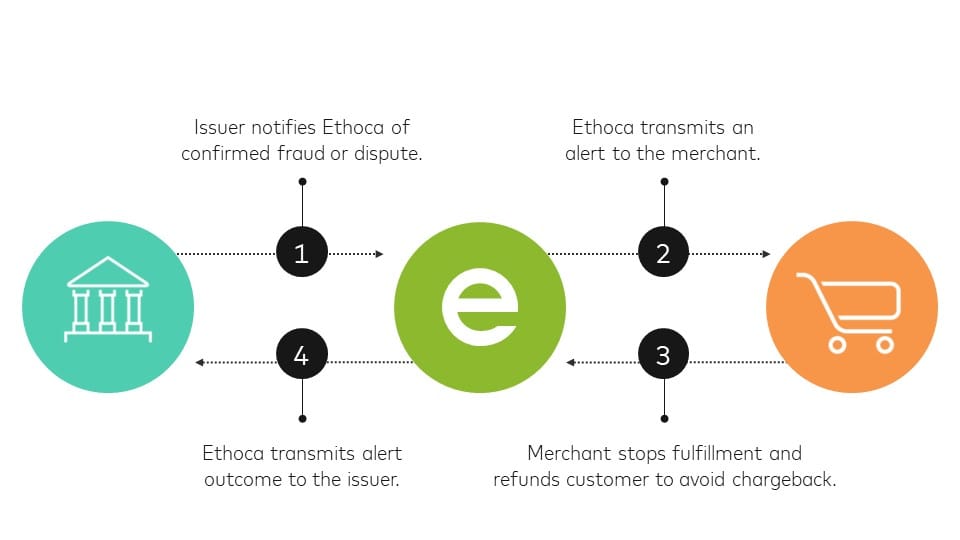
As a business owner, one of the most crucial aspects of running a successful venture is managing your finances effectively. This starts with setting up a solid business budget. A budget serves as a roadmap for your financial success, allowing you to allocate resources, track expenses, and make informed decisions about your business's financial future.
In this blog post, we will guide you through the process of setting up a business budget, step by step. We will begin by highlighting the importance of a business budget and why it is essential for your company's success. Next, we will delve into the process of identifying your business revenue and expenses, including how to determine your revenue sources and distinguish between fixed and variable expenses. We will also explain the concept of non-operating expenses and how they factor into your budget.
Once you have a clear understanding of your financial landscape, we will move on to creating your business budget. This section will cover setting financial goals for your business, creating a budget spreadsheet, and allocating funds appropriately to different aspects of your operations. We will provide practical tips and techniques to help you create a comprehensive and realistic budget that aligns with your business objectives.
Implementing and monitoring your business budget is just as important as creating it. In this next section, we will discuss the importance of communicating the budget to your team and involving them in the budgeting process. We will also explore how to track your business's performance against the budget, identify any deviations, and make necessary adjustments to stay on track.
Lastly, we will address the importance of adapting your business budget over time. We will emphasize the need to regularly review and update your budget, learn from past budget performances, and plan for future financial changes that may impact your business's financial health.
Setting up a business budget may seem daunting at first, but with the right guidance and approach, it can be a powerful tool to help you achieve your financial goals. So, let's get started on the journey to financial success for your business by setting up a solid business budget.
Understanding the Importance of a Business Budget
A business budget is not just a mere financial document; it is a strategic tool that plays a critical role in the success and sustainability of your business. Understanding the importance of a business budget is the first step towards building a solid foundation for your financial management. This section will delve into the key reasons why a business budget is essential and how it can benefit your organization.
1.1 Gaining Financial Control
A business budget provides you with a clear and comprehensive overview of your company's financial situation. It helps you gain control over your finances by allowing you to track your income and expenses, identify areas of overspending, and make informed decisions about resource allocation. With a budget in place, you can proactively manage your cash flow, avoid financial pitfalls, and ensure that your business remains financially stable.
1.2 Setting Financial Goals
A budget serves as a roadmap for your financial goals. It enables you to define specific objectives, such as increasing revenue, reducing costs, or investing in new ventures. By setting financial goals within your budget, you can align your business activities towards achieving those targets. This not only provides you with a sense of direction but also helps you measure your progress and celebrate milestones along the way.
1.3 Making Informed Decisions
With a well-planned budget, you can make informed decisions based on accurate financial data. It allows you to evaluate the feasibility of new projects or investments, assess the profitability of different products or services, and determine the financial implications of various business decisions. By considering the financial impact beforehand, you can minimize risks and maximize opportunities for growth and success.
1.4 Securing Financing and Investors
A solid business budget demonstrates your financial competence and professionalism, making your business more attractive to potential lenders and investors. When seeking external financing or partnerships, having a well-documented budget can instill confidence in stakeholders about your ability to manage funds responsibly. It shows that you have a clear understanding of your financial situation and have strategic plans in place to achieve your goals.
1.5 Performance Evaluation and Accountability
A budget serves as a benchmark to evaluate your business's performance and hold yourself accountable. By comparing actual results to the budgeted figures, you can assess the effectiveness of your financial management strategies, identify areas of improvement, and take corrective actions when necessary. It creates a culture of financial discipline and responsibility within your organization, ensuring that everyone is working towards the same financial goals.
Understanding the importance of a business budget is crucial for every business owner or manager. It provides financial control, sets goals, enables informed decision-making, attracts financing, and facilitates performance evaluation. With this foundation, you can now move forward to the next step: identifying your business revenue and expenses.

Identifying Your Business Revenue and Expenses
To create an accurate and effective business budget, you need to have a thorough understanding of your revenue sources and expenses. This section will guide you through the process of identifying and categorizing your business revenue and expenses, enabling you to have a clear picture of your financial inflows and outflows.
0.1 Determine Your Revenue
The first step in identifying your business revenue is to determine all the sources from which you generate income. This could include sales of products or services, rental income, interest earned, or any other revenue streams specific to your business. It is important to list and categorize each revenue source separately to accurately track and analyze your income.
0.2 Identify Fixed and Variable Expenses
Once you have a clear understanding of your revenue, it is crucial to identify and differentiate between fixed and variable expenses. Fixed expenses are those that remain relatively constant over time, regardless of changes in your business's activity level. Examples include rent, utilities, insurance premiums, and salaries. Variable expenses, on the other hand, fluctuate based on your business's level of activity or production. These may include costs of raw materials, marketing expenses, commissions, or shipping charges. By categorizing your expenses into fixed and variable, you can better manage and plan for the financial impact of each category.
0.3 Understand Non-Operating Expenses
In addition to revenue and regular operating expenses, it is essential to consider non-operating expenses that may impact your budget. Non-operating expenses are costs incurred outside of your core business operations. These may include one-time expenses, such as equipment purchases, legal fees, or marketing campaigns. By identifying and accounting for non-operating expenses, you can ensure that your budget accurately reflects the complete financial picture of your business.
Identifying your business revenue and expenses is a crucial step in setting up an effective budget. By determining your revenue sources, categorizing expenses as fixed or variable, and considering non-operating expenses, you can gain a comprehensive understanding of your financial landscape. With this information in hand, you can proceed to the next step of creating your business budget.
Creating Your Business Budget
Once you have identified your business revenue and expenses, it's time to move on to the next important step: creating your business budget. In this section, we will delve into the process of setting financial goals, creating a budget spreadsheet, and allocating funds appropriately to different aspects of your operations. By following these steps, you can develop a comprehensive and realistic budget that aligns with your business objectives.
1.1 Setting Financial Goals
Before diving into the details of your budget, it's crucial to establish clear financial goals for your business. These goals will serve as guiding principles for your budgeting process. Consider what you want to achieve in terms of revenue growth, profitability, cost reduction, or any other financial metrics that are important to your business. Setting specific, measurable, achievable, relevant, and time-bound (SMART) goals will provide clarity and focus as you allocate resources in your budget.
1.2 Creating a Budget Spreadsheet
A budget spreadsheet is a powerful tool that allows you to organize and track your financial information effectively. Start by creating a spreadsheet with different tabs or sections for revenue, fixed expenses, variable expenses, and non-operating expenses. Within each section, list the individual revenue sources or expense items along with their corresponding amounts. You can also include additional columns for budgeted amounts and actual amounts, enabling you to track and compare your budgeted figures with the actual results.
1.3 Allocating Funds Appropriately
Once your budget spreadsheet is set up, it's time to allocate funds appropriately to different aspects of your business. Begin by allocating funds to cover your fixed expenses, such as rent, utilities, and salaries. These expenses are essential for the day-to-day operations of your business. Next, determine the budget for your variable expenses, such as marketing, raw materials, and sales commissions. Consider factors like projected sales volume and marketing strategies when determining these amounts.
Additionally, don't forget to allocate funds for non-operating expenses that are essential for the growth and development of your business. Whether it's investing in new equipment, launching a marketing campaign, or hiring a consultant, ensure that these expenses are included in your budget.
Remember to consider contingencies and set aside some funds for unexpected or emergency expenses. This will provide a buffer in case of any unforeseen events that may impact your budget.
1.4 Reviewing and Refining Your Budget
Creating a budget is not a one-time task; it requires regular review and refinement. As you progress through the budgeting process, take the time to review each line item and ensure that it aligns with your business goals and financial objectives. Consider any changes in market conditions, industry trends, or internal factors that may require adjustments to your budget.
Furthermore, involve key stakeholders in the budget review process, such as your management team or financial advisor, to gain valuable insights and perspectives. Their input can help you identify areas for improvement and make informed decisions about resource allocation.
By following these steps and diligently creating your business budget, you will have a well-structured financial plan in place that can guide your business towards success. The next step is to implement and monitor your budget effectively to ensure its effectiveness.
Implementing and Monitoring Your Business Budget
Creating a business budget is only the first step; the real value lies in implementing and monitoring it effectively. In this section, we will explore the crucial steps to take in order to successfully implement your budget and ensure that it remains on track throughout the fiscal year.
2.1 Communicating the Budget to Your Team
One of the key aspects of implementing a business budget is effectively communicating it to your team. Ensure that everyone involved in the budgeting process, including department heads, managers, and employees, understands the budgetary goals, objectives, and constraints. Clearly articulate the expectations and responsibilities of each team member in relation to the budget. Encourage open communication and address any questions or concerns that arise. By fostering a shared understanding of the budget, you can create a collaborative environment that promotes accountability and supports the achievement of financial targets.
2.2 Tracking Business Performance Against the Budget
Monitoring your business's performance against the budget is essential to ensure that you stay on track and achieve your financial goals. Regularly compare your actual financial results with the budgeted figures. Analyze any variances and identify the reasons behind them. By tracking performance, you can identify areas of overspending or underutilized resources and take appropriate actions to address them. This could involve adjusting spending, reallocating resources, or implementing cost-saving measures. Tracking performance against the budget will provide valuable insights into your business's financial health and allow you to make informed decisions to optimize your financial outcomes.
2.3 Making Necessary Adjustments
As you monitor your business's performance against the budget, you may identify the need for adjustments. It's important to be flexible and responsive to changes in your business environment. If certain revenue projections fall short or unexpected expenses arise, consider revisiting your budget and making necessary adjustments. This could involve reallocating funds, revising goals, or implementing new strategies to overcome challenges. Regularly reviewing and adjusting your budget ensures that it remains relevant and aligned with the ever-changing dynamics of your business.
2.4 Seeking Input and Feedback
To enhance the effectiveness of your budget implementation and monitoring process, seek input and feedback from key stakeholders. Engage with your team members, department heads, and financial advisors, and encourage them to share their insights and observations. They may provide valuable perspectives on potential cost-saving measures, revenue-enhancing strategies, or operational improvements. By involving others in the budgeting process, you can tap into collective wisdom and foster a culture of continuous improvement within your organization.
Implementing and monitoring your business budget is a dynamic and ongoing process. By effectively communicating the budget, tracking performance, making necessary adjustments, and seeking input and feedback, you can ensure that your budget remains a relevant and valuable tool for financial management. The next section will delve into the importance of adapting your business budget over time to align with changing circumstances.
Adapting Your Business Budget Over Time
Adapting your business budget over time is crucial to ensure its relevance and effectiveness in guiding your financial decisions. Markets change, business environments evolve, and unexpected events occur. In this section, we will explore the importance of regularly reviewing and updating your budget, learning from past budget performance, and planning for future financial changes.
Reviewing and Updating the Budget Regularly
To keep your budget aligned with the current reality of your business, it is essential to review and update it regularly. Set aside dedicated time intervals, such as quarterly or annually, to assess the performance of your budget and make necessary adjustments. Consider factors such as changes in market conditions, shifts in customer preferences, or fluctuations in costs. Reviewing your budget regularly will help you identify areas for improvement, make informed decisions, and stay agile in response to evolving circumstances.
Learning from Past Budget Performance
Analyzing and learning from past budget performance is a valuable exercise for continuous improvement. Compare your actual financial results with the budgeted figures and evaluate the reasons behind any variances. Identify patterns, trends, and areas where you consistently exceeded or fell short of your expectations. By understanding the factors that contributed to these variations, you can refine your budgeting process and make more accurate projections in the future. Learning from past budget performance allows you to fine-tune your financial strategies and enhance the overall effectiveness of your budget.
Planning for Future Financial Changes
As your business grows and evolves, it is essential to anticipate and plan for future financial changes. Consider upcoming investments, expansion plans, or changes in your product or service offerings. Assess the financial implications of these changes and incorporate them into your budget. Additionally, stay informed about industry trends, economic forecasts, and regulatory developments that may impact your business's financial landscape. By proactively planning for future financial changes, you can adapt your budget to accommodate new opportunities and challenges, ensuring the long-term sustainability of your business.
Adapting your business budget over time is a proactive approach to financial management. By reviewing and updating your budget regularly, learning from past performance, and planning for future changes, you can maintain a budget that aligns with your business's evolving needs and goals. Remember, a budget is a dynamic tool that should be flexible and responsive to the ever-changing business environment.
As you conclude this comprehensive guide on how to set up a business budget, you have gained valuable insights into the importance of a business budget, identifying revenue and expenses, creating the budget, implementing and monitoring it effectively, and adapting it over time. With this knowledge, you are well-equipped to take control of your business's financial health and steer it towards success. Start implementing these strategies today and experience the positive impact of a well-managed business budget.


